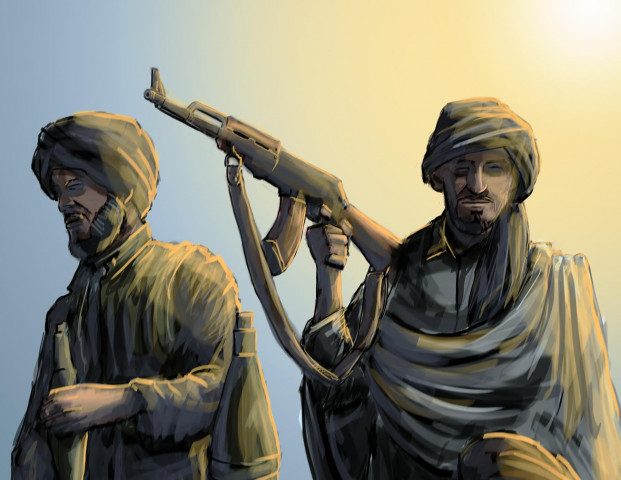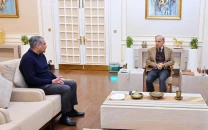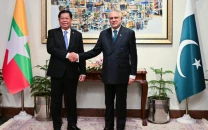Taliban attacks add to political uncertainty in Afghanistan
Defence analysts claim militants launching ‘symbolic’ assaults to prove nuisance value.

Recent attacks by the Taliban have increased concerns over the fragile security situation in Afghanistan at a time when the country faces a political crisis over alleged electoral fraud that has delayed its first democratic transition.
The attacks have also raised doubts on the capability of Afghan security forces. These will be taking on the burden of the entire security of the insurgency-battered country in coming months as foreign troops prepare to leave.
The Taliban intensified their attacks after they announced the traditional “spring offensive” in May — their last major operation against Nato troops.
In one of the biggest attacks of the Taliban ‘offensive’ codenamed “Khyber”, hundreds of heavily-armed militants challenged Afghan forces in Helmand province. They also took control of areas in Hisarak district in the eastern Nangarhar province last month.
Moreover, the heavily-guarded Kabul International Airport was attacked last month wherein helicopters being used by President Hamid Karzai were damaged by rockets.
On Friday, the Afghan media reported heavy fighting between the security forces and Taliban in Bargi Matal district in the eastern province of Nuristan where Taliban control the main road links.
Afghan defence analysts claimed the Taliban have not achieved much militarily in the latest attacks and have instead lost many fighters. However, they have showed the capability to strike at any place and any time, said analysts.
Former Afghan defence minister, Shahnawaz Tanai, says Taliban have lost many fighters as they lack the professional capability but have launched symbolic attacks mainly for political and propaganda purposes.
“As foreign troops are on the verge of exit, the Taliban want to show they exist and mount pressure on the government with attacks like these,” Tanai told The Express Tribune on Friday.
“Taliban are also anxious to convey a message to the incoming president that they still have the capability to create problems for him,” said Tanai, who headed the Afghan army in the early days of the Soviet occupation of Afghanistan.
The Taliban claim they will continue their war till an Islamic system is enforced in the country.
“As Jihad is an obligation for Afghans, we will continue the ongoing struggle as a fundamental duty until all invading troops leave and Islamic Sharia is implemented,” Taliban spokesman Zabihullah Mujahid told The Express Tribune via email.
“We have recently expanded our operations to eliminate the foreign invaders and their Afghan supporters who are responsible for the invasion of our homeland,” the spokesman said.
With attacks at highly-guarded areas and complete control of several districts, a section of the Afghan media now admits the security situation seems to be deteriorating with time and that Taliban militants might have become too big for law enforcement agencies to deal with.
The English daily, Afghanistan Times, stated in its editorial that despite deadly Taliban attacks, ministers and officials are busy securing their position in the next government while the two presidential candidates are at loggerheads.
The leading news channel, Tolo TV, said in a commentary that a series of major operations by the Taliban have left Afghan security officials nervous and open to criticism.
Tension on the border
The recent attacks have also increased tensions between Pakistan and Afghanistan as Afghan officials and President Karzai himself renewed the policy of blame game at a time when both countries need each other’s cooperation.
Late Tuesday night, a Pakistani border post was attacked by militants reportedly operating out of Afghanistan, which resulted in a strong protest by the Pakistani government.
When the Taliban launched a major offensive in the southern Helmand in June, President Karzai, in a veiled reference to Pakistan, said “foreigners” were behind the offensive. Karzai’s security officials, however, directly accused Pakistan’s security agencies of “involvement in the Helmand attack,” with the charge being angrily rejected by Islamabad.
Foreign Secretary Aizaz Ahmad Chaudhry avoided comments on the Afghan accusations when his reaction was sought last week. “I will not respond to allegations by counter allegations. This is not the policy of the Government of Pakistan,” Chaudhry said at a press conference.
Published in The Express Tribune, August 2nd, 2014.



















COMMENTS
Comments are moderated and generally will be posted if they are on-topic and not abusive.
For more information, please see our Comments FAQ